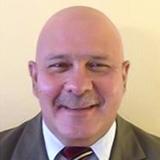Joseph Basha, CCP describes the latest peer reviewed publications on the Cytosorb hemoadsorption technology.
This comprehensive course serves as an engaging, knowledge-rich resource for all perfusionists, ranging from beginners to seasoned practitioners. Through this immersive lecture, a host of renowned experts in the field of perfusion and extracorporeal membrane oxygenation (ECMO) convene to share a wealth of indispensable insights on a range of vital subjects.
Beginning with an extensive overview of Continuous Renal Replacement Therapy (CRRT), the faculty delve into its crucial role in managing critically ill patients. They elucidate how CRRT can be effectively employed to stabilize patients by removing waste products and managing fluid overload in a measured, controlled fashion. Providing a well-rounded understanding, the course encompasses both theoretical facets and practical applications of this complex medical procedure.
A central theme of this perfusion course revolves around the interplay between ECMO and CRRT, addressing the challenges and complications that may arise when these two advanced therapies are concurrently utilized. The lecturers emphasize the criticality of the timing for initiating CRRT during ECMO treatment, factoring in diverse elements such as patient stability, fluid status, and renal function. Leveraging their vast professional experience, the experts guide learners through these intricate decision-making processes, thus illuminating the often difficult choices healthcare professionals must make in real-time.
The course expands the dialogue to include a groundbreaking therapy - Cytosorb. This pioneering method aims to alleviate the cytokine storm, a severe immune reaction commonly observed in critically ill patients. Advocating for an early application of Cytosorb at the inception of ECMO treatment, the experts suggest that this proactive approach can potentially attenuate the inflammatory response, decrease complications, and enhance patient outcomes. While establishing a definitive benefit through clinical studies may prove challenging, they stress the relevance of such therapies, particularly if they exhibit no harm and have potential therapeutic benefits.
Further into the course, a comparison of ECMO machines is undertaken, with a focus on the features of the Rotaflow 2 and Xenos devices. Drawing from their varying levels of experience and preferences influenced by their respective hospital protocols, the speakers offer their perspectives on these systems. The consensus leans towards simpler, more user-friendly systems, especially during the urgent initiation of ECMO. The rationale behind this preference lies in the reduced complexity and fewer steps involved in the setup process, enabling a faster response in critical scenarios.
The lecture concludes by inviting the audience to participate in upcoming live simulation events, offering learners the chance to further enhance their skills through these simulated procedures. A lucky participant even gets rewarded with a t-shirt in a live draw.
Overall, this course for perfusionists serves as an enlightening, pedagogical tool for those deeply interested in advanced patient care. By providing a platform to learn from the experiences and wisdom of seasoned professionals, it cultivates an active community of individuals passionate about delivering optimal patient care. It's a comprehensive masterclass that encapsulates the intricate, evolving realm of perfusion and ECMO, laying a solid foundation for further exploration and learning.

Joseph has been a practicing clinical perfusionist for 40 years. Joseph is the CEO of Houston Extracorporeal Technologies and is the program director of The New Orleans Conference